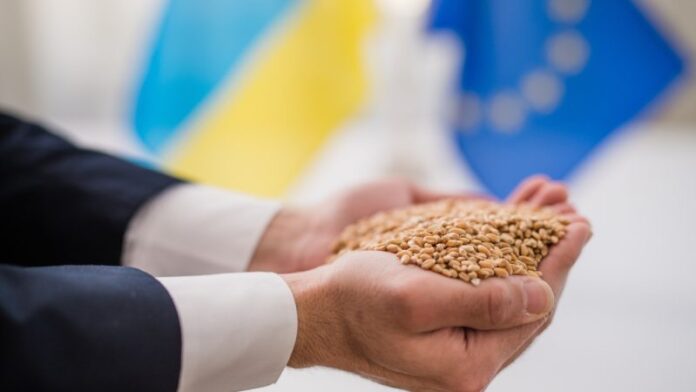Poland has introduced stricter controls on agri-food products at the Ukrainian border to protect its domestic market from an uncontrolled influx of products, Deputy Agriculture Minister Michał Kołodziejczak said on Sunday, according to Euractiv.
The European Union’s liberalization of trade rules with Ukraine to help its exports in July 2022 has resulted in Ukrainian food flooding the Polish market and other neighboring countries, resulting in a drop in prices and demand for domestic production.
With the introduction of controls, the Polish border “will be as tight as ever,” said Kołodziejczak after visiting the Dorohusk and Hrubieszów border crossings on Sunday.
He said he had also analyzed the documents on the transit of Ukrainian production. It turns out that much of the production, including rapeseed and wheat, that passes through Poland to the Baltic states eventually returns to Poland.
Farmers’ organizations have long been calling for controls on Ukrainian agri-food products entering Poland to ensure they pass through the country in transit and products that do not meet strict EU standards do not enter the Polish market.
Products from Ukraine, whose imports have caused serious disruptions to the Polish market since 2022, include grain, poultry, eggs, sugar, frozen fruit and even apple juice, of which Poland is one of the world’s biggest exporters.
Ukraine is not obliged to follow strict EU production rules and is allowed to use many plant protection products that are banned in the bloc, making its production cheaper but also lower quality, Mirosław Maliszewski, head of the parliamentary Committee for Agriculture and Rural Development, told Euractiv Poland last year.
“Goods that are in transit, e.g. rapeseed of questionable quality, should be carefully inspected by Polish services and, if necessary, returned to Ukraine,” Kołodziejczak said.
He added that the sugar checked during the inspections had “a strange smell, to say the least.”
“Officials explained that it could be like that because it is sugar for industry, for example, for jams or orangeade,” he said, adding that the matter should be thoroughly clarified or the production returned to Ukraine.
Last year, Poland joined other member states in introducing a unilateral ban on certain Ukrainian food imports. The ban met resistance in Brussels as trade policy is the sole competence of the EU.
The European Commission agreed to introduce an EU embargo on some imports to the countries in question but then dropped the measure, citing no significant risk to the bloc’s market.
The issue of agricultural imports from Ukraine unites the previous conservative Law and Justice government and the new broad ruling coalition led by Prime Minister Donald Tusk.
Both political camps insist on protecting the interests of Polish farmers from external competition.


